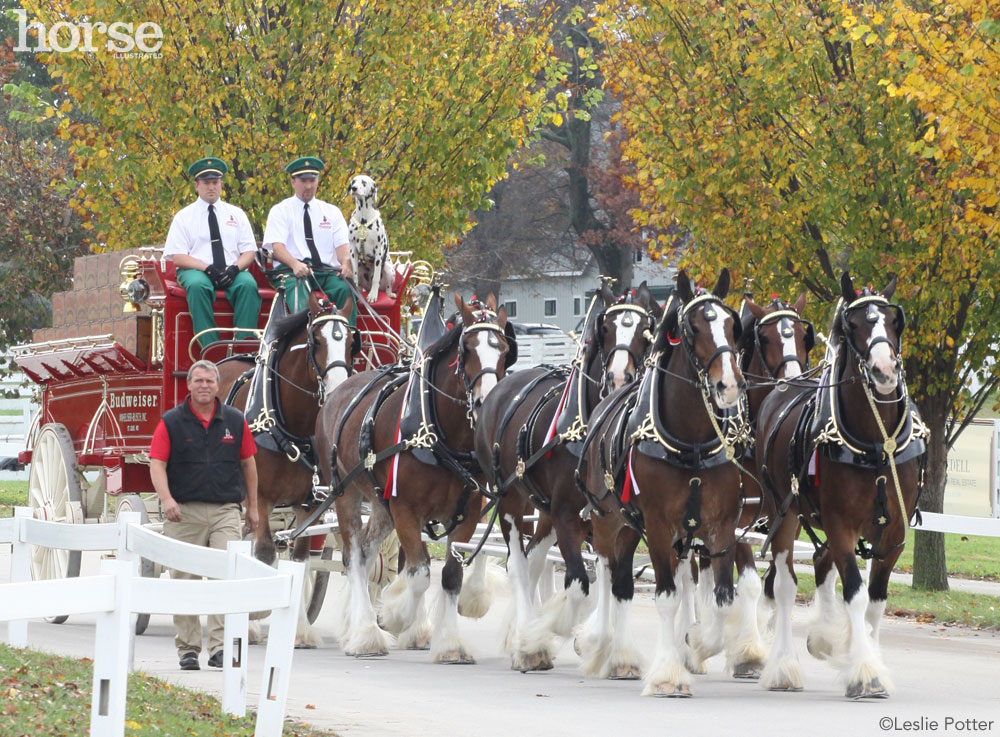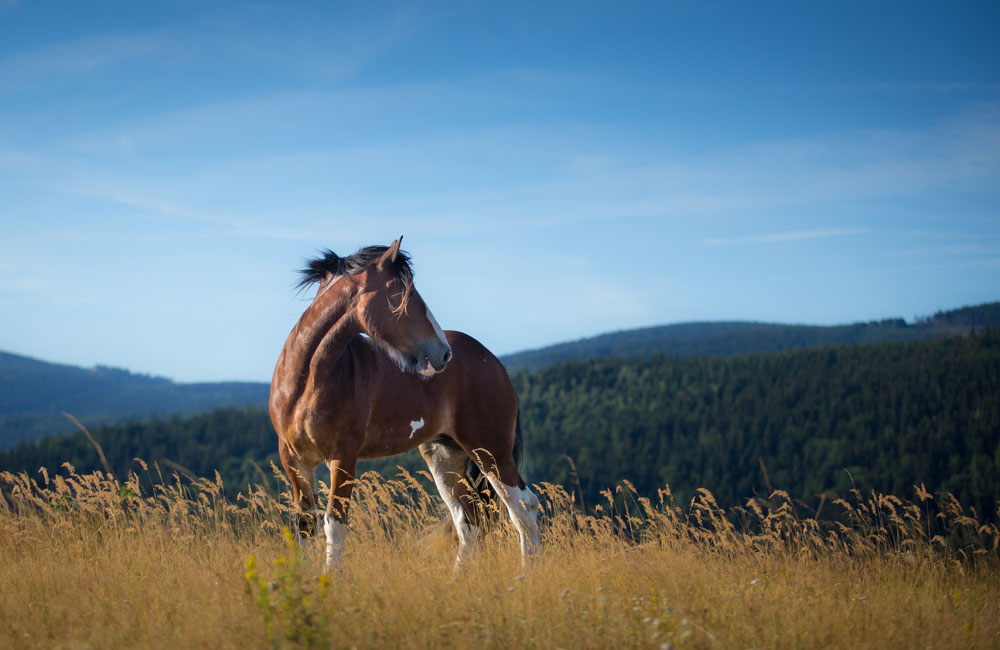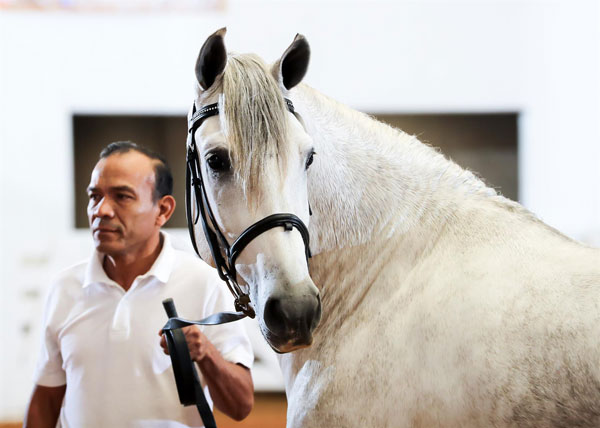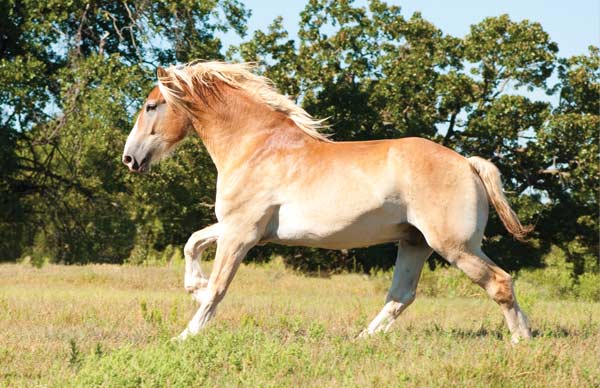The Clydesdale horse is one of the most popular breeds among horse lovers and the general public. Well-known globally for their role as the Budweiser Clydesdales — in which they appear in Anheuser-Busch advertisements and at events across the United States — they are arguably one of the most recognizable breeds and certainly one of the most loved. Learn more about these gentle giants’ history and characteristics.
Clydesdale Breed History
The Clydesdale originated in the Clyde Valley, Scotland, and is the youngest of all the United Kingdom heavy breeds, finding its full development in the last 150 years. In the late 1700s, Native horses of Lanarkshire were put to Flemish horses, imported by the Duke of Hamilton, to increase their height and bulk.

The Budweiser Clydesdales. Photo by Leslie Potter
Clydesdales were imported throughout the world and helped build the cities and towns of Canada, Australia and America. Today, they are extremely familiar in the United States because of their use in advertisements by Anheuser Busch. Teams of ‘Budweiser’ horses are kept and displayed at Anheuser Busch theme parks throughout the United States.

Photo by Photo-equine/Shutterstock
Breed Characteristics
Clydesdales stand from 16 to 18 hands and can be bay, brown, roan, black or gray, with white feathers and white markings. The Clydesdale is a flashy, high-stepping horse with strong, large feet. In fact, their feet were so big that in days past farmers couldn’t fit them in plow furrows. Therefore, Clydesdales were often worked in towns rather than farms.
For more information on the breed, check out the Clydesdale Breeders of the U.S.A. (CBUSA). The organization is the member organization for the breed, and is open not only to breeders and owners but to all those with a love for the Clydesdale horse that are interested in its advancement.
Further Reading:
10 Biggest Horses: Giants of the Equine World
This article originally appeared in Horse Illustrated magazine. Click here to subscribe!






FFA